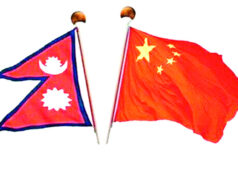China to hit back at BBC for repeated fake, biased reports

BBC dramas, such as Sherlock, Merlin and Doctor Who, are widely known in China for its whimsical plot. But it may be the BBC journalists who are more imaginative than BBC screenwriter Steven Moffat.
The Chinese Foreign Ministry’s slam Thursday over the BBC’s biased reports on China’s pandemic response resonates with recent public furor about the BBC’s coverage of Chinese stories that go quite opposite to what the BBC claims to be “impartial and honest” in its principles.
Chinese critics said that BBC stories expose its ideological and systematic bias, advising countermeasures against the BBC such as disqualifying the broadcaster in China.
The Chinese Foreign Ministry made solemn representation to the BBC’s Beijing office over a report that politicized the epidemic, using a video with an attempt to show epidemic control authorities violently enforcing the law and violating human rights, but it turned out to be a video clip of an anti-terrorism drill.
The BBC on Thursday defended its reports as “accurate and fair” while rejecting accusations from the Chinese Foreign Ministry.
In a response, Wang on Friday argued that the BBC has repeatedly attacked and smeared the Communist Party of China and the Chinese government using ideology, which seriously deviates from the basic principle of balanced and objective media reporting. Wang urged the BBC to apologize over relevant reports, saying that China reserves the right to take further measures.
As the pandemic is the most wide-reaching global crisis in 2020, attacking China on this topic shows the sinister malignancy of the UK and US media, especially the BBC, Li Haidong, a professor at the Institute of International Relations at China Foreign Affairs University, told the Global Times on Friday.
The expert warned that biased reporting can create more conflict, which in turn could further hurt China-UK relations.
Indeed, it is not the first time for the BBC to use subjective editing, or dark and depressing lens language, to discredit China and the Chinese government, especially in reports related to the Hong Kong Special Administrative Region (HKSAR) and Northwest China’s Xinjiang Uygur Autonomous Region.
Biased broadcasting corporation
The BBC did not miss an opportunity to smear China when the British government used Hong Kong as an excuse to provoke China.
In the recent reports featuring British National (Overseas), or BN(O) passports, the BBC repeatedly emphasized Britain’s status as a former colonial suzerain state for Hong Kong and tried to argue that Britain was entitled to interfere in Hong Kong’s internal affairs under the banner of protecting so-called democracy and human rights.
It ramped up efforts to portray the people of Hong Kong being faced with a government “which did not listen to the people, and a police force that showed little restraint.”
A week ago, the BBC produced a video report called “The exiles: Hong Kong at a crossroads.” This seemingly ambitious piece was simply about two thugs who once carried the British flag during a demonstration in Hong Kong, moaning about their unexplained hatred of Chinese identity.
The BBC tried to report in an attempt to depict all Hong Kong people like the two rioters, masked even in the video, who might choose to escape legal punishment via the BN(O) policy.
The BBC’s similar China-related reporting is not only ideologically biased but also often criticized for failing to follow the most fundamental journalistic norms. Netizens even question if some BBC journalists lost their most basic bottom line of honesty.
On China’s Twitter-like platform Sina Weibo, a typical post comment reads “Not to be a man like CNN, not to make reports like BBC.”
Other netizens wrote: “BBC is the abbreviation of ‘babbling China’, or for more the ‘Biased broadcasting corporation.”
Tracing back to 2019 where Hong Kong street riots broke out, criticism was nonstop after fake news and unverified rumors appeared in some foreign media, like the BBC.
A video that BBC published in August 2019 showing a Hong Kong police officer pointing the gun at protesters amid riots is one of the examples of how the BBC delivers distorted narratives about the Hong Kong police force but also helps form a biased depiction of Hong Kong protests.
The BBC ran a story with the headline “Hong Kong protests: Police officer points gun at protesters.” But it soon met backlash as later-released video footage showed that the safety of the officers was seriously threatened by violent protesters who surrounded them and threw objects at them, meaning the officers were legally justified to raise their weapons as a warning.
The lack of professionalism has often left some BBC journalists facing vigilance and rejection from the Chinese public who are disgusted by some of the discredited behaviors by foreign media such as secretly filming, spreading rumors and posting unverified slanders. Such tactics are also common in the media’s coverage of Xinjiang.
Rumors in Xinjiang stories
The BBC on Wednesday launched a report saying Uygur women have been “systematically raped, sexually abused, and tortured” at Xinjiang’s re-education camps, highlighting alleged abuses of women’s rights in Xinjiang, which was seriously rejected for “having no factual basis at all” by Chinese Foreign Ministry Spokesperson Wang Wenbin who urged the BBC to stop smearing China on Xinjiang topics.
Wang claimed some interviewees turned out to be actors spreading false information, and GT’s investigation has found that lies of “Xinjiang women being raped” have been frequently given by familiar names – or say “actresses,” who appeared in almost every round of the Western media’s hyping of Xinjiang topics – firstly from “torturing” trainees to “birth control” and now “mass rape.”
A netizen mocked the BBC’s “fake dazzling headline” that used the same face photo for almost “all functions… battered wife, farmer, war victim, janitor, beggar, and now….”
In a report in December 2020, the BBC accused China of “forcing” Uygurs and other minority groups to pick cotton by hand, citing so-called evidence and conclusions made by Adrian Zenz – an infamous anti-China “scholar” and rumor spinner – even without verifying Zenz’s claim or talking to anyone in the cotton farming industry.
However, by visiting cotton farms and interviewing people working in cotton fields in southern Xinjiang, the Global Times found that machines have been widely applied in cotton planting and harvesting. With fewer workers needed, there is no “forced labor” in related industries in Xinjiang.
Li said that the BBC’s concoction of fake news reflected the inherent mindset and habit of racism in the West, and a consistent pride and prejudice in British and US policy toward China, seriously influencing their understanding of the nation.
Rather than being an independent news agency, the BBC now serves as a public opinion weapon in the strategic competition for the West to contain China. “The BBC undertakes a role of framing and attacking China in public opinion,” Li said.
Editing tricks
The BBC has recently come under the spotlight after a Chinese blogger showed how the BBC distorts its news reporting with oblique shooting and editing tricks. Since the beginning of the COVID-19 outbreak in 2020, some foreign media have continuously used subjective editing to discredit China’s anti-epidemic efforts and achievements. The blogger mocked BBC journalism as “making up stories in line with the BBC’s news principle of ‘results before evidence’.”
In the eyes of Chinese audiences, the elements of oblique, dimness and jitters are often presented in the reporting shots of BBC’s China stories, which make viewers who do not know the truth feel a bleak, dim atmosphere and a sense of oppression.
“Using video-making techniques as a tool in the politics of discrediting really insults the art,” one Chinese netizen wrote on Weibo.
A Quora user named Edmund Leung criticized the BBC for taking “readership more seriously than objectivity because it will bring more money which media relies on to survive.
For the BBC’s shameful behavior, Li advises to fight back to expose its lies in the domestic and international community. “We may consider revoking BBC’s license in China as the news agency keeps making rumors,” Li said.
The BBC’s behavior also deeply hurts China-UK relations. Using the pandemic to discredit China is actually using it to incite hatred among people in the UK and more broadly, the West, Li suggested. “This would create an atmosphere to hype the China threat and anti-China rhetoric in Western society, so that the general public in the West would support the hard positions that their governments take on China, which is very dangerous.”
Meanwhile, as the UK is shifting to Asia and the Asia-pacific region with more military forces and political resources, the BBC’s reporting will lead to sharp distrust and confrontation between China and the UK, which could be tragic.
“It will also weaken or even interrupt those forces and efforts that can contribute to the positive development of the relationship between China and the UK. And it will harm scientific cooperation between the two countries,” he said.



